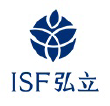Making Peace in the Face of Adversity
Mar 4, 2022
All members of the ISF community will be keenly aware of the troubling news at home and abroad over the past week. With little warning, we find our world a changed place. Conflict and contagion crowd the headlines of our daily newsfeed. All of us are struggling to grasp the enormity of the events taking place around us and increasingly feel anxious for the future. Our children, with no lifelong experiential frame of reference with which to compare ‘now’ with ‘then’, are confused at best.
At home, the Hong Kong community finds itself facing escalating public health challenges that have been experienced in nearly every country in the world in recent months. While we felt with some confidence that such events were unlikely to occur in Hong Kong, the stark statistical reality has shown us how misplaced our confidence has been. Prior policies, procedures, practices have all been challenged and rendered obsolete by a rapidly evolving situation. Pragmatism is perhaps the best place to look for practical wisdom at this time. We should all take some comfort from the experience of communities elsewhere in the world, where the COVID-19 ‘tidal wave’ has peaked and abated. Life in those communities has begun to resume an encouraging degree of normality. We hope to join them soon.
Beyond our shores, we can see a graphic manifestation of the fragility of peace. The tragic combination of ambition, aspiration, resentment over rights and wrongs, and what some might see as a modern incarnation of ‘manifest destiny’, bring into sharp focus the many ways in which humanity can inadvertently or willfully misconstrue and misunderstand, with devastating consequences. Again, we face the paradox of a ‘fight’ for ‘peace’. The fight is escalating, with words and deeds weaponized; the world teeters on the edge of something unthinkable. Peace seems elusive when so many want the alternative.
In both conflict and contagion, there are many forces at work, some natural, others human. There are no simple solutions to these ‘wicked’ multi-lateral, complex problems. I do believe, however, that we can make choices in our own small, but interconnected personal worlds to effect change at an individual level. We may be limited in our range of choice and the actions at our disposal, but we can still contribute in our own way.
Humanity’s power has always been manifested in shared, collaborative action towards common sustainable goals; its weakness is rooted in division, discrimination, and chaos. Our survival depends on which path we take, which choice we make. As we seek to identify the face of our adversary at this troubled time, perhaps it is our own?
One of my favourite quotes from an earlier era of human conflict comes from a famous general who said, “If you want to make peace, you don’t talk to your friends. You talk to your enemies.” The echo chambers of like-minded views in which we live are comfortable and familiar, but they will not help us make peace. We must heed the wisdom of making peace with words, not weapons.
Dr. Malcolm Pritchard
Head of School
